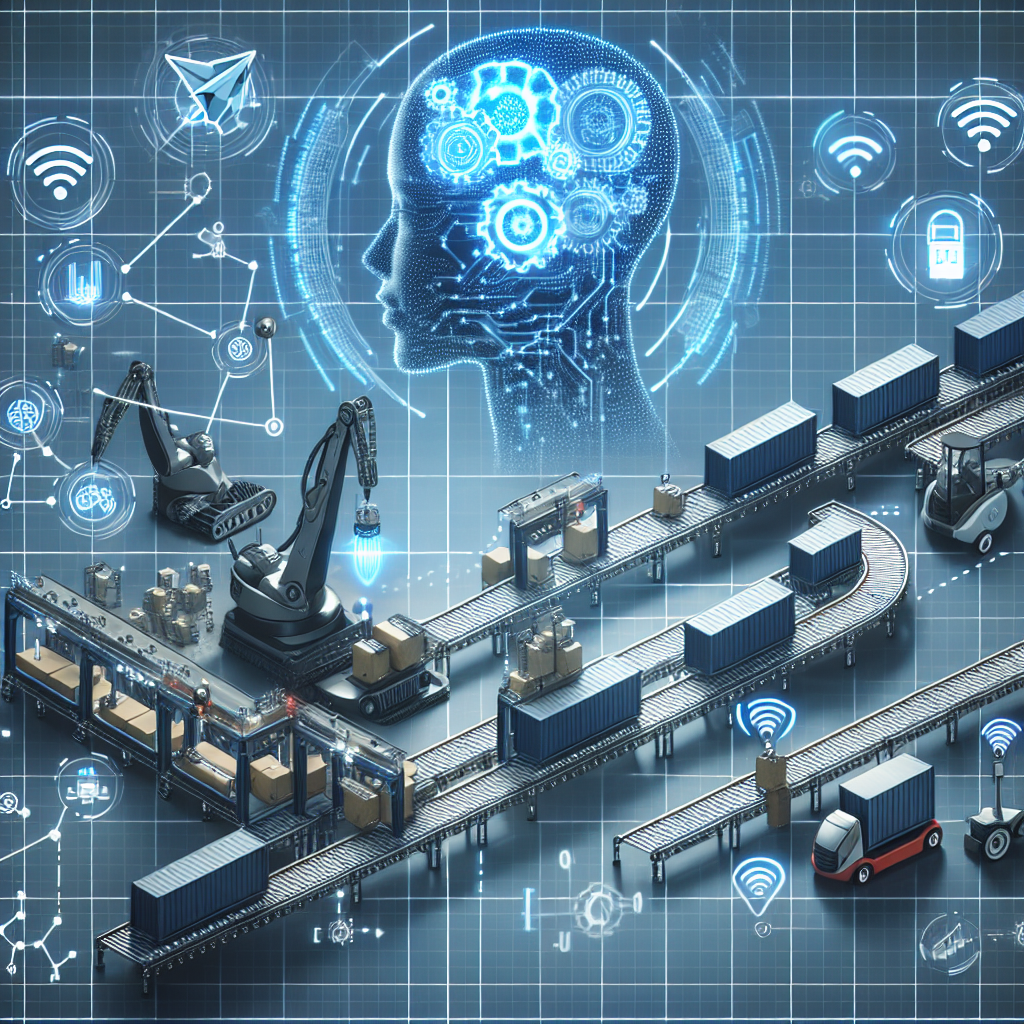The Future of AI in Project Supply Chain Management
Artificial Intelligence (AI) is revolutionizing the way businesses operate, and supply chain management is no exception. AI has the potential to transform project supply chain management by improving efficiency, reducing costs, and increasing productivity. In this article, we will explore the future of AI in project supply chain management and discuss the benefits and challenges that come with its adoption.
Benefits of AI in Project Supply Chain Management
1. Predictive Analytics: AI can analyze historical data and trends to predict future demand and supply chain disruptions. This allows businesses to optimize their inventory levels, reduce lead times, and improve customer satisfaction.
2. Automated Procurement: AI-powered systems can automate the procurement process by identifying suppliers, negotiating contracts, and placing orders. This reduces the time and effort required to manage suppliers and ensures that businesses always have the materials they need.
3. Supply Chain Visibility: AI can provide real-time visibility into the entire supply chain, allowing businesses to track the movement of goods, monitor inventory levels, and identify bottlenecks or inefficiencies. This transparency enables businesses to make informed decisions and quickly respond to changes in the market.
4. Demand Forecasting: AI can analyze customer behavior, market trends, and external factors to accurately forecast demand. This helps businesses anticipate fluctuations in demand, adjust production levels, and minimize stockouts or excess inventory.
5. Process Optimization: AI can optimize production schedules, transportation routes, and warehouse layouts to minimize costs and maximize efficiency. This streamlines operations and improves overall supply chain performance.
Challenges of AI in Project Supply Chain Management
1. Data Quality: AI relies on high-quality data to make accurate predictions and recommendations. Businesses may struggle to collect, clean, and maintain the data needed for AI systems to function effectively.
2. Integration: Integrating AI systems with existing supply chain management software and processes can be complex and time-consuming. Businesses may need to invest in new technology, retrain employees, and redesign workflows to fully leverage the benefits of AI.
3. Security: AI systems can be vulnerable to cyberattacks, data breaches, and other security threats. Businesses must implement robust security measures to protect sensitive information and ensure the integrity of their supply chain data.
4. Ethical Concerns: AI raises ethical concerns around job displacement, algorithm bias, and privacy. Businesses must consider the social and ethical implications of AI adoption and take steps to mitigate any negative consequences.
5. Cost: Implementing AI in project supply chain management can be costly, requiring significant upfront investment in technology, training, and infrastructure. Businesses must carefully evaluate the return on investment and consider the long-term benefits of AI before committing to its adoption.
FAQs
Q: How can AI improve supply chain visibility?
A: AI can provide real-time visibility into the entire supply chain by analyzing data from multiple sources, such as sensors, RFID tags, and GPS trackers. This enables businesses to track the movement of goods, monitor inventory levels, and identify bottlenecks or inefficiencies in the supply chain.
Q: What are the key challenges of implementing AI in project supply chain management?
A: Some key challenges of implementing AI in project supply chain management include data quality, integration, security, ethical concerns, and cost. Businesses must address these challenges to fully leverage the benefits of AI and ensure successful implementation.
Q: How can businesses overcome the challenges of AI adoption in project supply chain management?
A: Businesses can overcome the challenges of AI adoption by investing in data management tools, training employees on AI technology, implementing robust security measures, addressing ethical concerns, and carefully evaluating the cost-benefit analysis of AI implementation. By taking a strategic and holistic approach to AI adoption, businesses can maximize the benefits of AI in project supply chain management.
Q: What are some examples of AI applications in project supply chain management?
A: Some examples of AI applications in project supply chain management include predictive analytics for demand forecasting, automated procurement processes, supply chain visibility tools, process optimization algorithms, and predictive maintenance systems. These AI applications can help businesses streamline operations, reduce costs, and improve overall supply chain performance.
In conclusion, the future of AI in project supply chain management is promising, with the potential to revolutionize how businesses operate and manage their supply chains. By leveraging the benefits of AI, such as predictive analytics, automated procurement, and supply chain visibility, businesses can improve efficiency, reduce costs, and increase productivity. However, businesses must also address the challenges of AI adoption, such as data quality, integration, security, ethical concerns, and cost, to ensure successful implementation. By taking a strategic and holistic approach to AI adoption, businesses can unlock the full potential of AI in project supply chain management and stay ahead of the competition.

